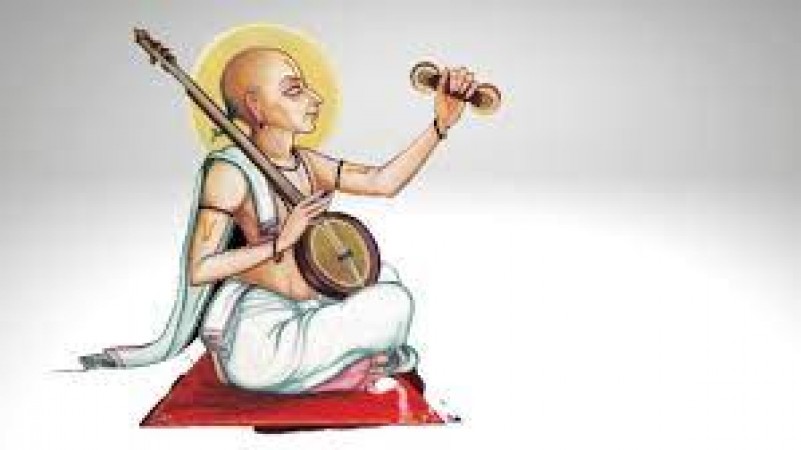
Surdas, also known as Sant Surdas, was a prominent poet-saint and musician who lived during the 15th-16th century in northern India. He was a devout follower of Lord Krishna, and his compositions are renowned for their emotional depth, devotional fervor, and captivating melodies. Surdas' life and works have had a profound impact on the Bhakti movement and Indian classical music, earning him a place of reverence in the hearts of millions. Surdas, the blind poet-saint of divine melodies, left an indelible mark on Indian spirituality and classical music. His unwavering devotion to Lord Krishna and his soulful compositions continue to resonate with devotees, inspiring them to deepen their connection with the divine. Through his timeless works, Surdas has become a beacon of divine love and a testament to the transformative power of devotion in the journey of spiritual awakening.
Surdas was born in 1478 CE in Sihi, a village near Mathura, Uttar Pradesh. According to popular accounts, he was born blind, which led to his early abandonment by his parents. He was found and raised by a group of wandering ascetics. Despite his blindness, Surdas displayed an exceptional talent for music and poetry from a young age, composing soul-stirring verses in praise of Lord Krishna. Surdas' devotion to Lord Krishna, the eighth avatar of Lord Vishnu, was unwavering. He expressed his profound love and adoration for the divine through his poems and songs, which were primarily composed in Braj Bhasha, a dialect of Hindi. Surdas' works are replete with vivid descriptions of Krishna's childhood, divine exploits, and enchanting personality, which continue to captivate devotees to this day.
Surdas' literary contributions are primarily found in the form of "Surdas Bhajans" or devotional songs dedicated to Lord Krishna. His most famous work is the "Surdas Sagar," a collection of his compositions that are considered a treasure trove of devotional poetry. Within this collection, some of his most renowned compositions include "Surdas Ke Pad" and "Surdas Ke Dohe." One of his most beloved poems is the "Bhramar Geet," in which he vividly describes the divine play of Lord Krishna with the gopis (cowherd maidens) in the groves of Vrindavan. Surdas' unique style of expressing the depths of divine love and devotion through his verses earned him accolades as a master poet. Surdas played a crucial role in the Bhakti movement, a spiritual and social reform movement in medieval India that emphasized direct, personal devotion to the divine. Through his devotional poetry, he sought to break the barriers of caste, creed, and social status, proclaiming that genuine love and devotion were the true paths to spiritual liberation. Surdas' compositions appealed to people from all walks of life, transcending linguistic and social barriers. His portrayal of Lord Krishna as the divine lover and the compassionate friend endeared him to devotees across the Indian subcontinent. Surdas' works continue to be sung and revered in various classical music traditions and devotional gatherings to this day.
Surdas' legacy endures through his devotional compositions and their profound influence on Indian culture and spirituality. His poetry and music have not only inspired countless devotees but have also enriched Indian classical music. Many of his bhajans are an integral part of the traditional musical repertoire, sung with deep devotion and reverence. In addition to his spiritual impact, Surdas' life story exemplifies the triumph of the human spirit over adversity. Despite being blind and facing early challenges, he rose to become one of the most celebrated poet-saints in Indian history, demonstrating the power of devotion and the beauty of divine inspiration.
Also read -The Garuda Purana: A Sacred Text of Hinduism